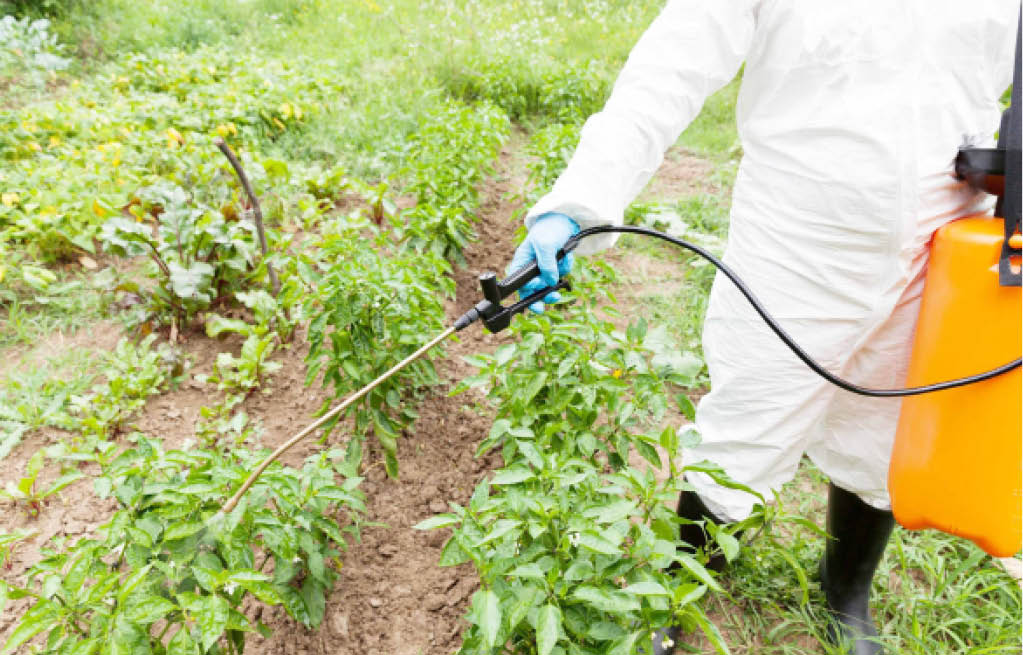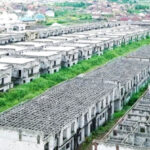Stakeholders in the farming value chain have cautioned against the use of synthetic pesticides, herbicides and other chemicals to improve plant growth and food production in the country.
The National Agency for Food and Drug Administration and Control (NAFDAC) on Monday said it has “received an alert from the Federal Ministry of Agriculture and Rural Development cautioning on the possibility that the European Union and the United Kingdom were exporting banned neonicotinoid pesticides to Nigeria and other poorer countries.”
NAFDAC Director-General, Mojisola Adeyeye, in the statement, said the dangers posed by pesticides are of immense concern to the agency, adding that the “report of the study conducted by Heinrich Boll Foundation claimed 40 per cent of pesticides used in Nigeria had been banned in the European Union.”
To this end, Adeyeye said NAFDAC has developed an action plan for the ban/phase-out of 12 active ingredients and the reclassification of four other harmful pesticides in Nigeria.
She said the availability of alternatives in the country was put into consideration to ensure that stakeholders, especially farmers, are not affected by the decisions taken.
But speaking on the development, the Director, Agricultural Services, Kwara State, Muhammed Kabir Hassan, said pesticides are chemicals used for the control of pests like insects, rodents and monkeys among others in the farms that affect crops.
According to him, “These chemicals contain different types of active ingredients that when applied in an environment, depending on its degradability to dissolve/acclimatise quickly or not.
He said such will now transform into various forms of effects on the soil, like killing the soil’s microorganisms that are beneficial, and extinction of varieties of beneficial animals in the field.
“Before, if you go to the farm, you see a lot of bees but that is not the case now because some of these chemicals have driven them away, yet bees are known as farmer’s friends. The soil texture and structures are also affected by these chemicals.
“It also has direct negative effects on humans through inhaling and when it touches the skin, can cause rashes depending on the concentration level,” he noted.
The director, who is also a farmer, said pesticides have residual effects and stayed in the plants.
“Any time they are consumed by humans, it has an effect and that is why we have different types of cancers all over the place.
“So though it seems they are used as disease control, the negative impact is more than the value we are getting from them in most cases. Even if we produce more food but they are harmful for consumption, what is the benefit?
“So, there is a need to have a regulatory body that can work with the farmers and agrochemicals’ industries to see how to minimize the effect or we go totally organic on pesticides and herbicides which is more helpful and healthy than the synthetic chemicals.”
He said most of the Western world sees Nigeria and other African countries as the only place they can market their products while we are ready to depend on whatever they give to us. But we have to produce to save ourselves and the economy. We should not because we want to produce “more food” and consume deadly substances.
“The use of synthetic chemicals is rampant and we should think of a way out while the government should encourage the use of organic chemicals. The farmer should also be ready to have attitudinal change towards their means of production,” he submitted.
On his part, Malam Mukaila Salaudeen, Kwara State chairman of Amana Farmers and Grain Suppliers Association of Nigeria, said the effects of pesticides are enormous on farmers.
“Most of the farmers are not well trained on its usage and mixing and some erroneously use overdose for ‘more effectiveness’.
“Some of our businessmen who import don’t have adequate knowledge about it and just flood the farms with it.
“Some pesticides itch when they get in contact with those sprayers; they can fold or burn the leaves of crops when used in overdose which causes low yields.
“So, what is the essence of using chemicals that will destroy crops, especially those with high concentration, when the intention is to control pests.
“In the attempt to control the early and late attack of some crops by pests, farmers spray up to five times instead of two causing the soil to be very acidic, thereby destroying its nutrients. Farmers should desist from overdose and over-concentration.
“The best way to go is to encourage organic farming. The leave of dogoyaro when squeezed and the water sprayed on the crop will control some pests and it’s very healthy,” he said.
For Mrs Helen Oduyemi, a cotton farmer in Oyo State, the way to go on the issue of pesticides and fertilizers is organic, adding that she didn’t understand why Nigeria is importing pesticides and fertilizers.
According to her, the irony is that “how can you say you are bringing chemicals to us to have more food and better yields and yet when we export the food from that process, you condemn it and refuse to buy. Does that make sense?
“For us in our farm, we don’t need NAFDAC to tell us these chemicals are poisonous when the people sending them refuse to buy or consume the yields.
“Definitely they know what they are doing and we as a farm are not going to trade that way.
“That is one of the agricultural disadvantages that we have as a country or Africa as a whole. And let me say this, most times even if farmers who are using fertilizers used the recommended doses, their natural soil would have still given them the results if not better.
“People don’t do soil tests but just want to use fertilizers, what if the land is not in need of it? Some lands need just conditioners like nitrogen and calcium. But our farmers just go out there, buy MPK and compound the issue. That is why land profiling is very important,” she submitted.

 Join Daily Trust WhatsApp Community For Quick Access To News and Happenings Around You.
Join Daily Trust WhatsApp Community For Quick Access To News and Happenings Around You.


